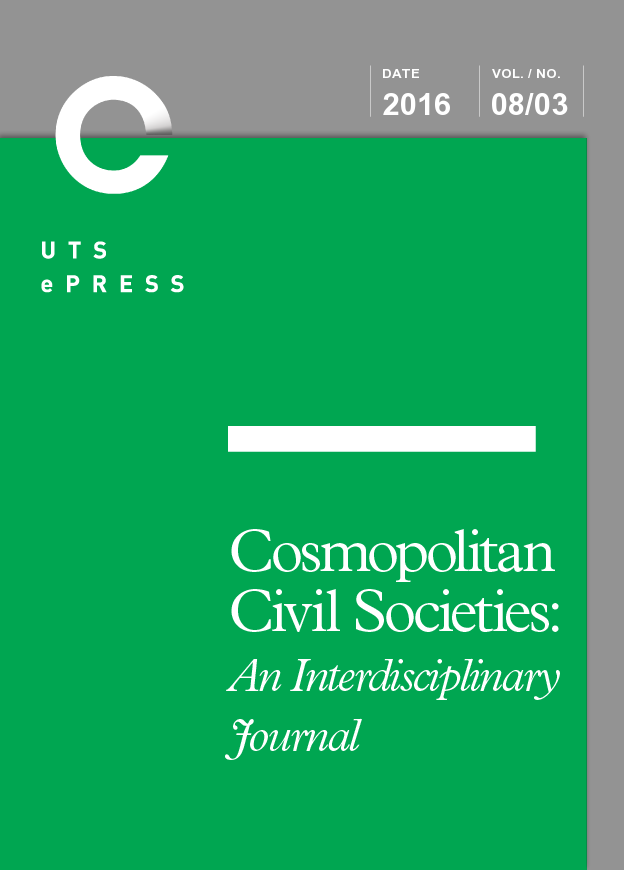Sri Lanka: An Ethnocratic State Endangering Positive Peace in the Island
Main Article Content
Abstract
Although proclaimed as a democratic republic, the Sri Lankan state is strongly controlled and ruled by Sinhala Buddhist influence due to a deep engrained belief that the island belongs to the Sinhala Buddhists. The modus operandi of the Sri Lankan state apparatus outlines the ethnocratic characteristics of the state. This mono-ethnic and mono-religious attitude has led to the widening and deepening of the discrimination against a particular ethnic group known as the Tamils who traditionally inhabit the North and East of the island. Ethnocracy continues to be defended and justified by the state in the name of sovereignty, territorial integrity and national security and has led to further polarization of the already divided ethnic groups. As a consequence and outcome of the ethnocratic nature of the Sri Lankan state, a bloody war erupted between successive governments of Sri Lanka and the Liberation Tigers of Tamil Eelam (LTTE). After nearly 38 years the prolonged war came to a brutal end in May 2009 amidst blatant violations of international law. However, the root causes of this conflict, which occurred due to ethnocratic nature of the state, have not yet been addressed resulting in the continuation of the ethnic conflict despite the end of the war.
Article Details
Issue
Section
Authors who submit articles to this journal from 31st March 2014 for publication, agree to the following terms:
a) Authors retain copyright and grant the journal right of first publication with the work simultaneously licensed under a Creative Commons Attribution License that allows others to share and adapt the work with an acknowledgement of the work's authorship and initial publication in this journal.
b) Authors are able to enter into separate, additional contractual arrangements for the non-exclusive distribution of the journal's published version of the work (e.g., post it to an institutional repository or publish it in a book), with an acknowledgement of its initial publication in this journal.
c) Authors are permitted and encouraged to post their work online (e.g., in institutional repositories or on their website) prior to and during the submission process, as it can lead to productive exchanges, as well as earlier and greater citation of published work (See The Open Access Citation Advantage Service). Where authors include such a work in an institutional repository or on their website (ie. a copy of a work which has been published in a UTS ePRESS journal, or a pre-print or post-print version of that work), we request that they include a statement that acknowledges the UTS ePRESS publication including the name of the journal, the volume number and a web-link to the journal item.
d) Authors should be aware that the Creative Commons Attribution (CC-BY) License permits readers to share (copy and redistribute the work in any medium or format) and adapt (remix, transform, and build upon the work) for any purpose, even commercially, provided they also give appropriate credit to the work, provide a link to the license, and indicate if changes were made. They may do these things in any reasonable manner, but not in any way that suggests you or your publisher endorses their use.
For Volume 5 No 3 (2013) and before, the following copyright applied:
Authors submitting articles to UTSePress publications agree to assign a limited license to UTSePress if and when the manuscript is accepted for publication. This license allows UTSePress to publish a manuscript in a given issue. Articles published by UTSePress are protected by copyright which is retained by the authors who assert their moral rights. Authors control translation and reproduction rights to their works published by UTSePress. UTSePress publications are copyright and all rights are reserved worldwide. Downloads of specific portions of them are permitted for personal use only, not for commercial use or resale. Permissions to reprint or use any materials should be directed to UTSePress.
